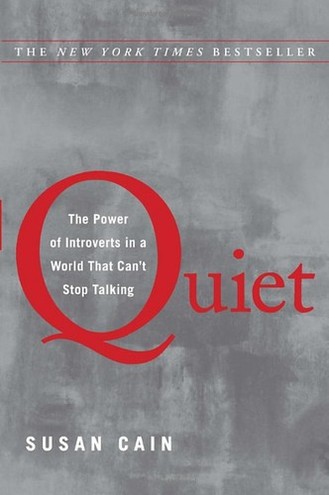Review of QUIET
by Johny McFliggen, PhD Literature & Business, Oxford
In a world where the loudest voice often wins, Susan Cain's "Quiet: The Power of Introverts in a World That Can't Stop Talking" emerges as a refreshing whisper of sanity. Cain, with the precision of a seasoned litigator and the narrative grace of a novelist, dissects the cultural obsession with extroversion that dominates modern Western society. She meticulously unravels the Extrovert Ideal, which has been fetishized by a culture that equates being outgoing with success, leadership, and, somewhat erroneously, happiness. It's as if she's daring us to put down our megaphones and listen for once.
Cain's exploration of introversion is as much a journey through the corridors of history and science as it is a personal manifesto. Her examination of biological differences offers a fascinating dive into the brain chemistry that fuels personality traits. It's reminiscent of Malcolm Gladwell's penchant for weaving together disparate strands of research to make a cohesive argument—except Cain’s lens is more intimate, more introspective.
Highlighting introverted leaders like Rosa Parks and Steve Wozniak, Cain dismantles the myth that effective leadership requires charisma and gregariousness. This brings to mind Jim Collins' "Good to Great," where he posits that humility often trumps hubris in leadership. Cain's narrative is an ode to the quiet strength found in solitude and reflection, echoing Thoreau’s Walden-esque plea for introspection amidst the cacophony of daily life.
Critics who accuse Cain of oversimplifying personality traits seem to miss the point. Like a skilled painter, she uses broad strokes to capture the essence of introversion while acknowledging its complexity. It’s less about defining introversion and more about reshaping our understanding of it. Her practical advice for introverts navigating an extroverted world is both empowering and actionable, reminiscent of the strategies outlined in Marti Olsen Laney’s "The Introvert Advantage."
The real triumph of "Quiet" is its ability to give voice to those who have long been relegated to the background. In doing so, it challenges the societal norms that have silenced them. Cain’s work stands alongside Elaine Aron's "The Highly Sensitive Person," inviting us to appreciate the nuanced beauty of human diversity.
Susan Cain’s "Quiet" is not just a book; it’s a social movement wrapped in eloquent prose. It urges us to reconsider what it means to be successful and who gets to define it. For anyone who’s ever felt overwhelmed by the din of extroverted expectations, this book is both a balm and a battle cry. In an era where noise often drowns out substance, "Quiet" reminds us of the transformative power of turning down the volume and tuning into our inner worlds.
Purchase Link: QUIET on Amazon



